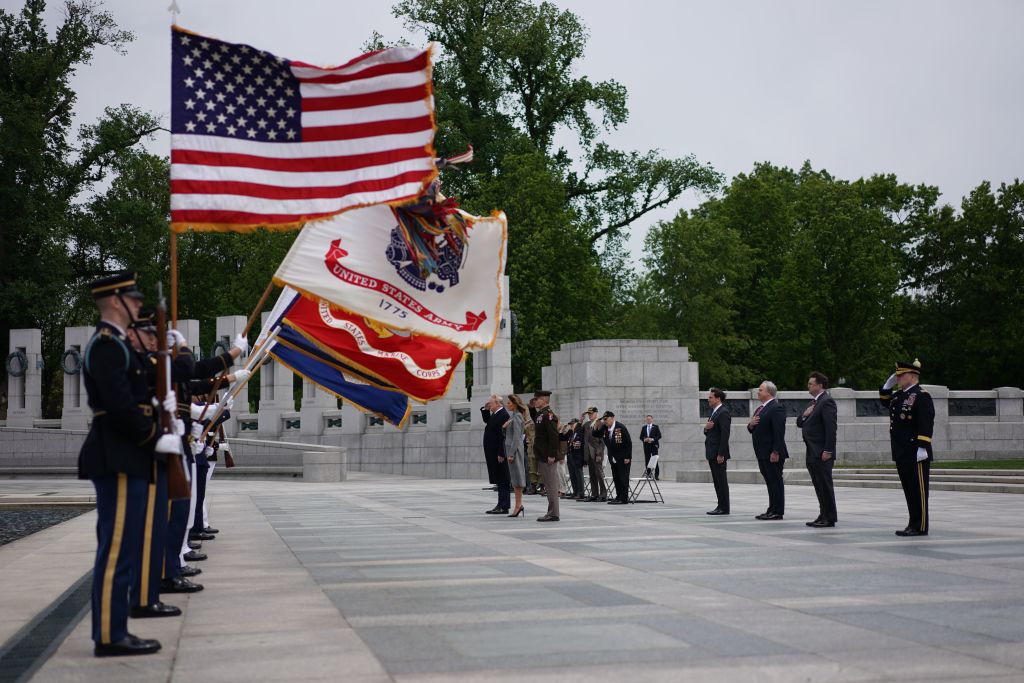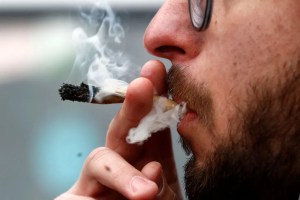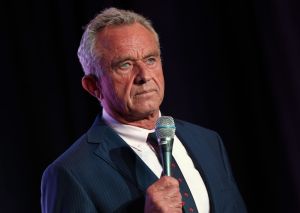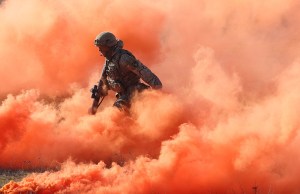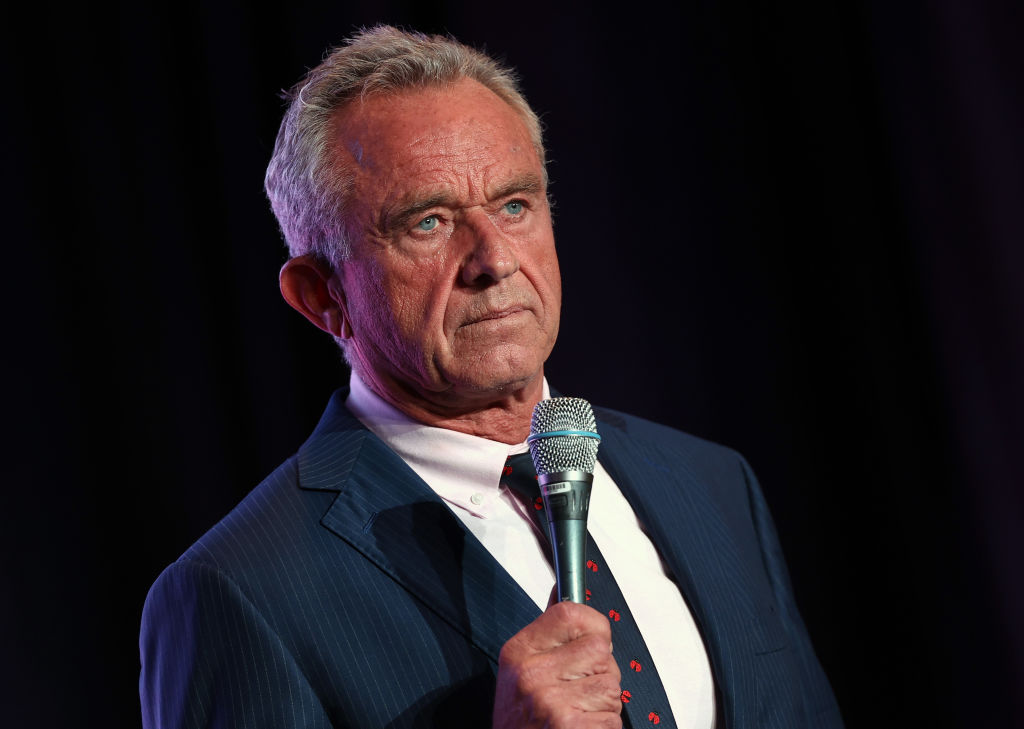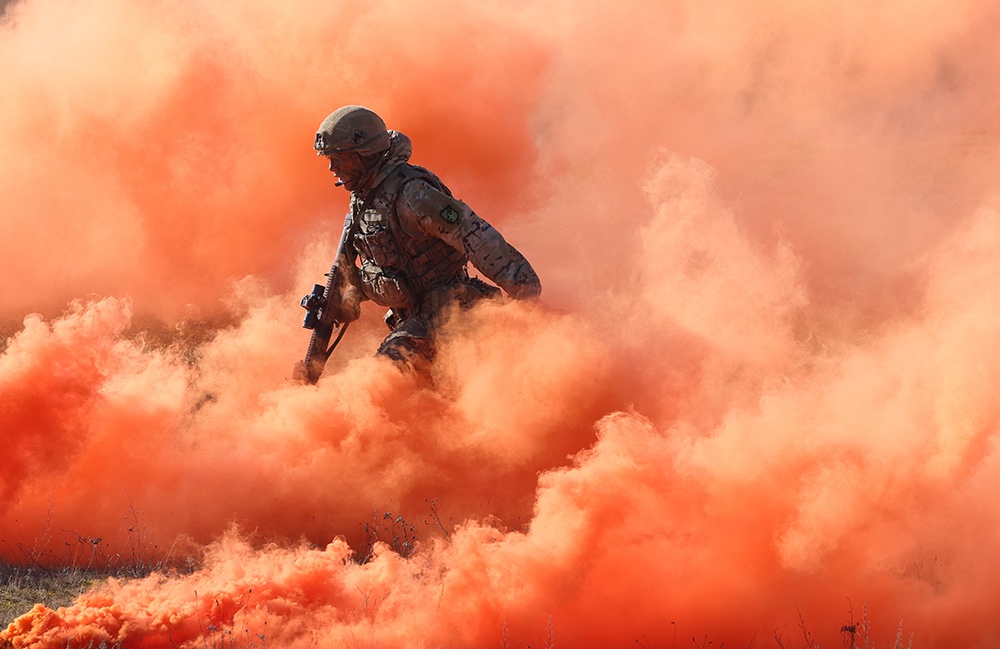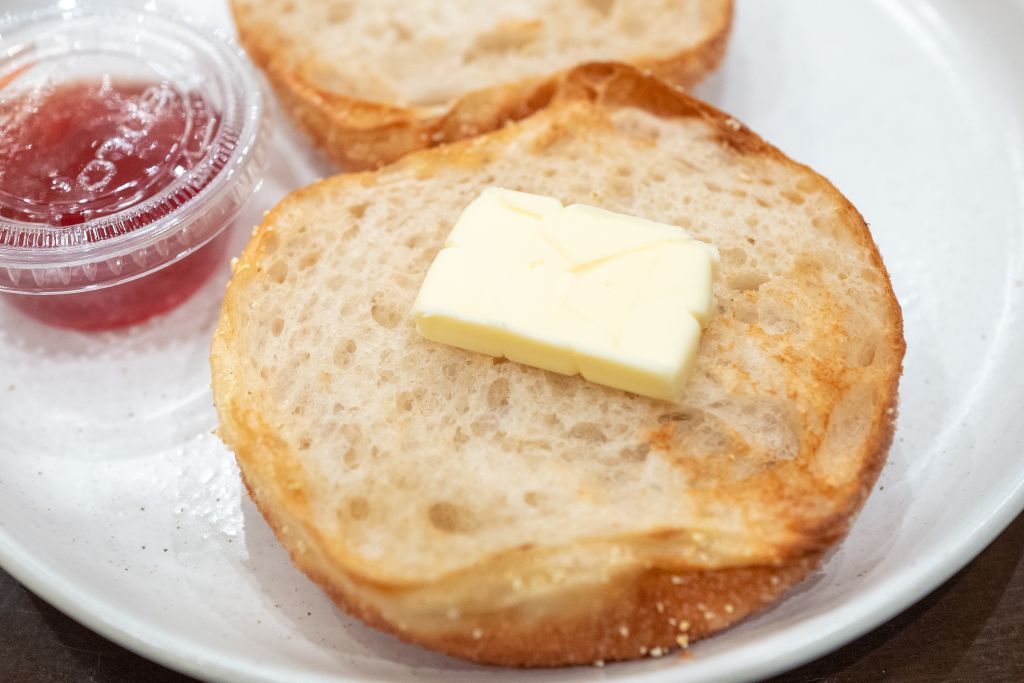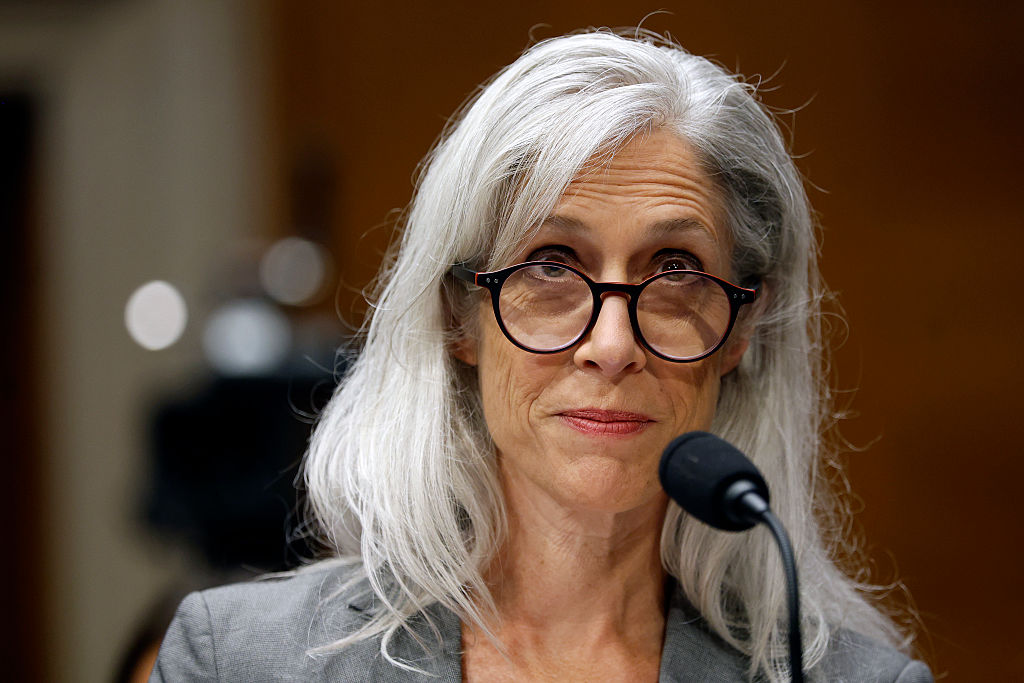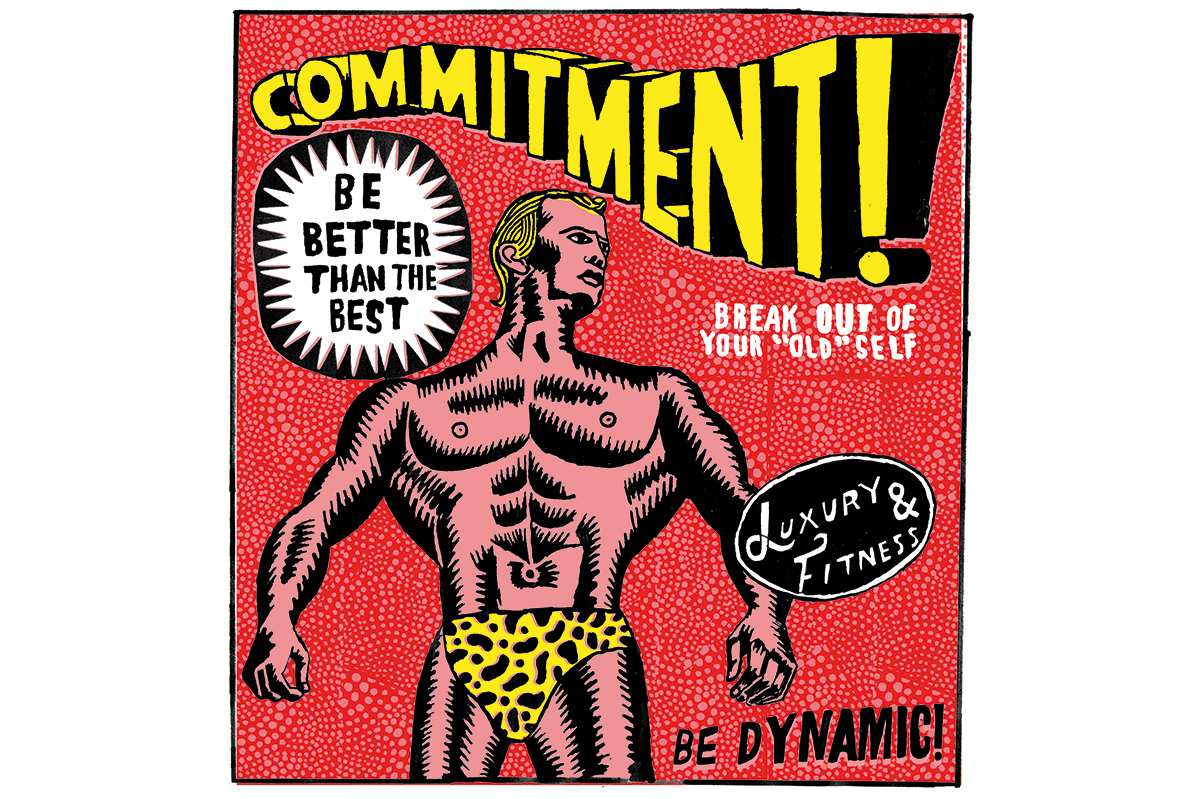President Trump invited World War Two veterans to Washington to commemorate the Allied victory in Europe last week — and the media and public health establishments threw a fit. ‘Ninety-three-year old veterans will be traveling to visit the White House — they should not be traveling!’ groused MSNBC anchor Nicolle Wallace on May 7, the day before VE (Victory in Europe) Day. ‘People should not be doing non-essential travel,’ fretted one of the channel’s health experts. ‘Don’t leave home!’
Trump compounded his public health heresies by not wearing a mask during the ceremony. The day after the commemoration, the New York Times complained: ‘The president hosted a wreath-laying ceremony at the World War Two Memorial in Washington on Friday to mark the 75th anniversary of the victory over Nazi Germany by inviting several veterans aged 95 and over, even though they were in the most vulnerable age group.’The photo of the ceremony in the print edition was captioned: ‘President Trump did not wear a mask Friday during a wreath-laying ceremony that was attended by World War Two veterans, who are in the 90s and highly vulnerable.’
The mask scolds were silent about the fact that the medal-bedecked veterans, standing yards behind the president and saluting the flag, were also unmasked.
The furor over the maskless VE celebration highlights the forces driving this moment of national fear and submission. At stake is whether there are any values more important than maximal safety and protection from risk.
The first thing to be said about the VE Day episode is that the criticism of Trump for not donning a mask outside is based on no science at all. Outdoor transmission of viruses in a wide-open space is virtually unknown. Infection occurs overwhelmingly indoors, and requires close and prolonged contact. People are less likely to get infected by the coronavirus outside than they are to die inside from falling, poisoning themselves, or choking, as Vanity Fair writer T.A. Frank has pointed out.
Either the mask hysterics in the media and political spheres don’t know those basic facts and thus should not be advising the rest of us, or they do know the facts, and yet want to maintain universal outdoor mask compliance and cowering indoor self-sequestration anyway.
Why would they want that? To preserve the safetyism ideology that has jumped from the university to the public sphere. Those unmasked vets are an affront to the safety ethic. Imagine a conversation between a mask enforcer and a vet. Enforcer: ‘Don’t get on a plane! Don’t attend the celebration! You are at risk. You might get sick and…and…die!’ Vet: ‘I am 97 years old. I have fought a war to defend democracy. I may die from the coronavirus or from another infirmity, but die I will. In the meantime, I can honor the sacrifices of my fellow fighters, or I can shut myself up at home. The choice is easy.’
The values motivating those soldiers and sailors 75 years ago and today have historically been seen as male ones: honor, duty, sacrifice, risk-taking, and involvement in the public sphere. It has not been lost on our professional elites that the current moment represents an opportunity to replace those values, already on life support, with a feminized ethos. Male politicians and media personalities are now crying in public, gloated the New York Times’s former gender editor-turned-reporter. ‘The days when a politician cried and it was over for them — that’s over,’ a leadership coach told the paper. ‘Things like empathy, vulnerability, emotional connectedness — these are the things that define today’s leaders,’ the coach added. In case we missed the point, Bennett concluded: ‘In other words, the leadership traits that, traditionally, have been associated with women.’
***
Get three months of The Spectator for just $9.99 — plus a Spectator Parker pen
***
The outdoors mask is the most potent symbol of safetyism’s current grip over the American psyche, which is why the media are so obsessed with Trump’s refusal to cover himself in public and why the rest of us must be broken to the discipline of the mask. Mask-wearing should start at two years old, a self-described public health expert announced on May 11 on cable news. New York governor Andrew Cuomo has been ramping up his mask commandments by the day. On May 3, when the spread of the virus in New York had long descended from its natural apex, Cuomo deployed his usual strategy of paternalistic positive reinforcement: ‘When we talk of New Yorkers together and how smart we are, you know how to show love? By wearing a mask.’
Actually, wearing a mask outdoors is how you show scientific illiteracy. The CDC’s contact tracing guidelines target individuals who have been in close contact for at least 15 minutes with an infected person. A fleeting outdoor encounter on a sidewalk creates no risk of infection. Yet in Manhattan, where outdoor mask-wearing is now about 95 percent, people press themselves against building walls if an unmasked walker is approaching on a distant vector; others semaphore angrily with their arms to keep death away. In Central Park, picnicking millennials scream at unmasked passersby that they are threatening precious millennial lives.
The fury that engulfed a Texas politician at the start of coronavirus hysteria adumbrated the clash of values revealed by the unmasked VE Day ceremony. Lt. Gov. Dan Patrick suggested on March 23 that ‘those of us who are 70-plus, we’ll take care of ourselves.’ Meanwhile, said Patrick, ‘let’s get back to work, let’s get back to living… Don’t sacrifice the country.’
This Roman sense of something larger than one’s own safety — above all, the public good — was blasted by commentators on both the left and the right. How dare the lieutenant governor suggest that there might be other values worth preserving besides the minimization of personal risk? Likewise, Trump has been sneered at for expressing optimism regarding the country’s economic revival — a traditional role of a leader to rally hope — instead of focusing on the suffering of victims.
A photo array from VE Day collected by CNN inadvertently destroyed the myth of Trump’s unique and illiterate intransigence regarding outdoor mask wearing. Neither Angela Merkel, Prince Charles, nor Emmanuel Macron were sheathed for their ceremonies, a positive sign of lingering respect for the public sphere.
An effective coronavirus travel ban for World War Two veterans would mean that none show up to commemoration ceremonies at all, since virtually all remaining vets are nonagenarians. For the health enforcers, such an absence would be a feature, not a bug, since the vets’ very presence is a reminder of a lost world that safetyism seeks to destroy. The most uplifting photo from the CNN VE Day collection showed a British veteran, elegant in a black suit and tie, walking carefully down a street, as dozens of observers on the sidewalk cheered him on. The vet was unmasked — but so, too, were the bystanders. Maybe his world has not yet disappeared completely.
Heather Mac Donald is the Thomas W. Smith fellow at the Manhattan Institute and the author of The Diversity Delusion.



